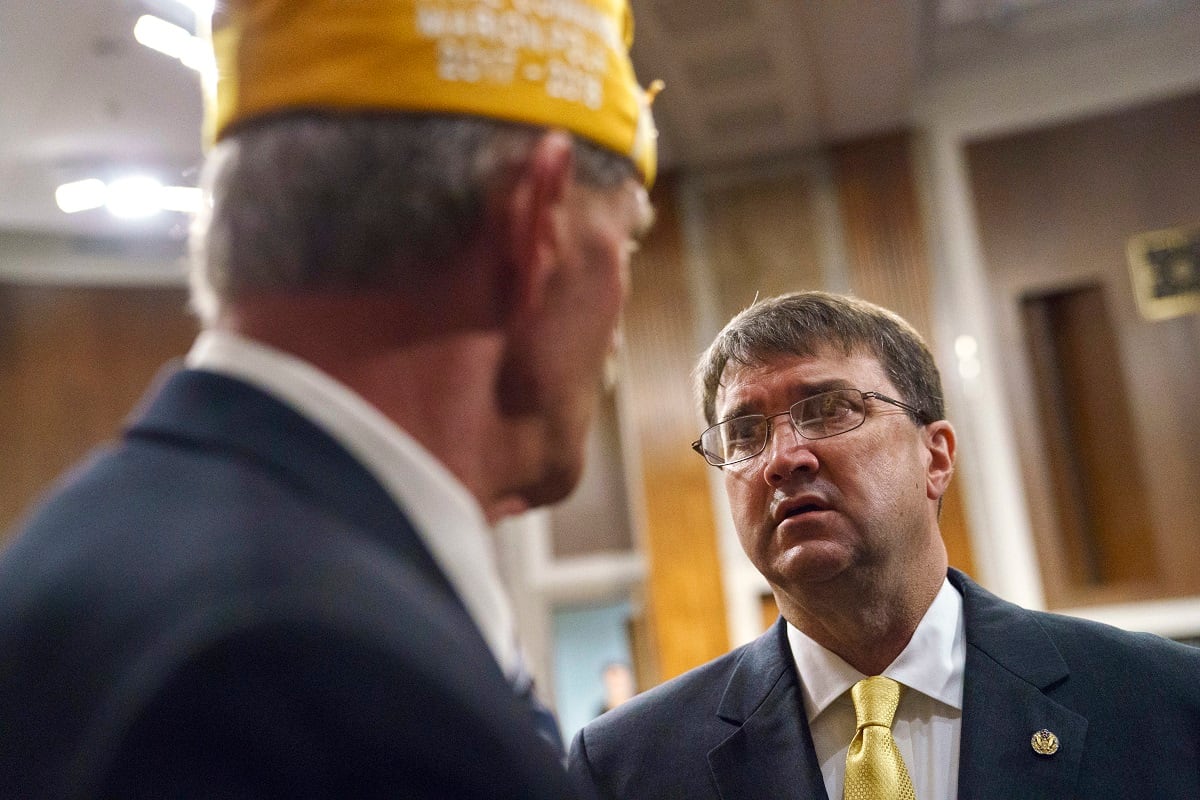WASHINGTON — Veterans Affairs secretary nominee Robert Wilkie pledged to make that department more customer friendly and better integrated with outside health care systems without “privatizing” veterans services in a subdued Senate confirmation hearing on Wednesday.
Wilkie, President Donald Trump’s third pick to lead the massive VA bureaucracy, said if he is confirmed his priorities would be to improve veterans access to medical care, reduce the backlog of benefits payments, reform the department’s human resources systems and “improve the culture” at VA.
“Many of the issues I encountered as acting secretary were not with the quality of medical care but with getting our veterans through the door to reach that care,” he told senators. “Those problems are administrative and bureaucratic … That is where VA must go.”
The 55-year-old Air Force Reserve colonel, who currently serves as the Pentagon’s under secretary for personnel and readiness, served as acting secretary for two months following Trump’s firing of former VA Secretary David Shulkin over Twitter for management problems at the department.
RELATED

The confirmation hearing also came two months after Trump’s previous pick to replace Shulkin, Rear Adm. Ronny Jackson, withdrew his name from consideration for the post amid allegations of unprofessional behavior while serving as White House physician.
Several senators at the hearing referenced that leadership turmoil at VA and questioned how much interference from the White House Wilkie will face as he works to restore public faith in the department.
“We have seen VA political appointees work actively and publicly to undermine a secretary and deputy secretary who were unanimously confirmed by the Senate,” said Senate Veterans’ Affairs Committee ranking member Jon Tester, D-Mont.
“As we speak, the secretary and deputy secretary positions are vacant, while those same political appointees continue to collect paychecks from VA. We are seeing non-partisan senior leaders and subject-matter experts leave the VA in droves – many are concerned that sound policies and ideas are being increasingly marginalized at the expense of political interests.”
Wilkie said he was confident that he will have the ability to choose his own staff and advocate on behalf of policies that help veterans, even if his opinions run counter to White House staff.
The biggest of those issues is expected to be implementation of the recently passed VA Mission Act, which includes an overhaul of the department’s community care programs.
Critics have said administration officials are pushing too aggressively to send federal money to private-sector doctors for veterans care, hollowing out the VA health system. Wilkie defended the idea, saying that the law still leaves department officials at the center of planning for veterans health care.
But he also said that veterans need to have broader access to medical care, whether that means more department options, more telehealth opportunities, or taxpayer-funded appointments in the community.
Senators mostly passed on questions about controversies facing Wilkie in recent days, including a series of news reports outlining his defense of potentially racist and sexist policies while working for former Sens. Jessie Helms and Trent Lott.
The strongest queries on those topics came from Wilkie’s former boss — Sen. Thom Tillis, R-N.C. — who attacked the reports as unfair and misleading. Wilkie said his past work with the group the Sons of Confederate Veterans was only at military and congressionally backed events, and that his past policy work did not reflect any discriminatory views.
Most members on the panel predicted an easy confirmation process for Wilkie, the son of a wounded combat veteran and a confidant of Defense Secretary Jim Mattis. Since the top VA job became a Cabinet level post 30 years ago, no senator has cast a vote opposing a president’s VA nominee.
But several members of the panel warned Wilkie not to expect that goodwill to extend indefinitely into his tenure.
Committee Chairman Sen. Johnny Isakson, R-Ga., noted that Congress has passed a host of major department reforms in recent months and provided consistent raises for the department’s budget since 2001.
“There are no excuses anymore,” he told Wilkie. “Failure is not an option.”
Leo covers Congress, Veterans Affairs and the White House for Military Times. He has covered Washington, D.C. since 2004, focusing on military personnel and veterans policies. His work has earned numerous honors, including a 2009 Polk award, a 2010 National Headliner Award, the IAVA Leadership in Journalism award and the VFW News Media award.




